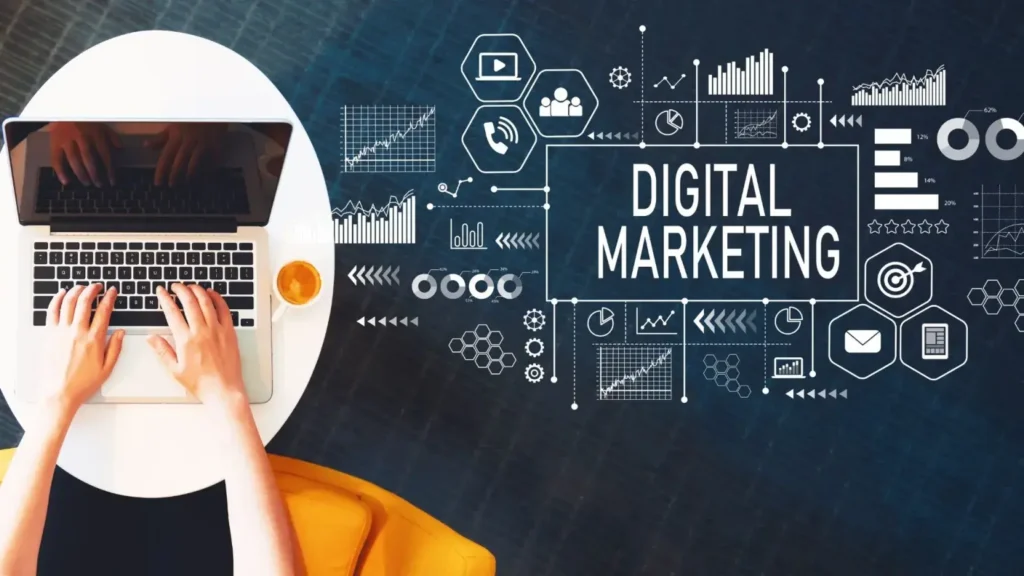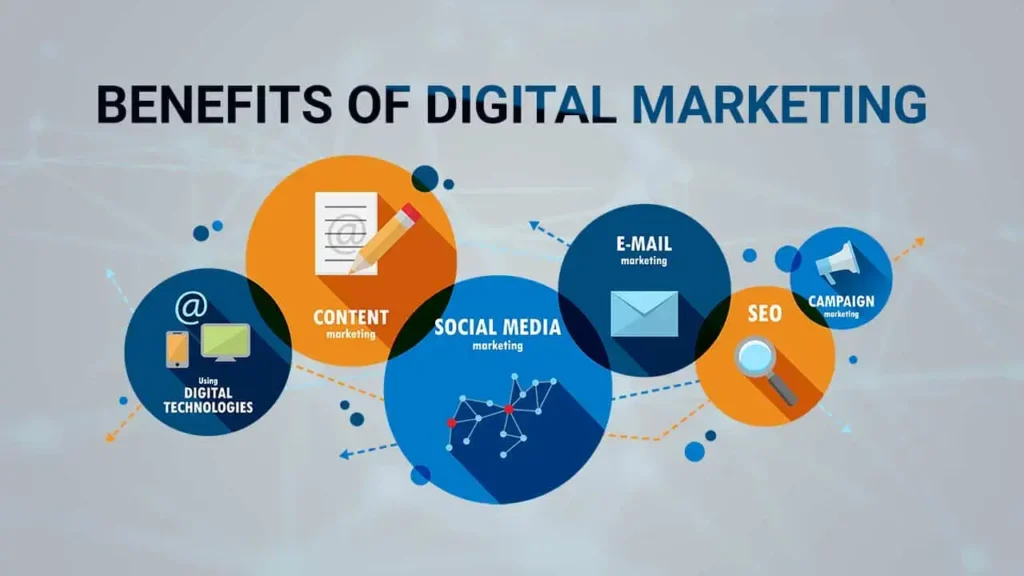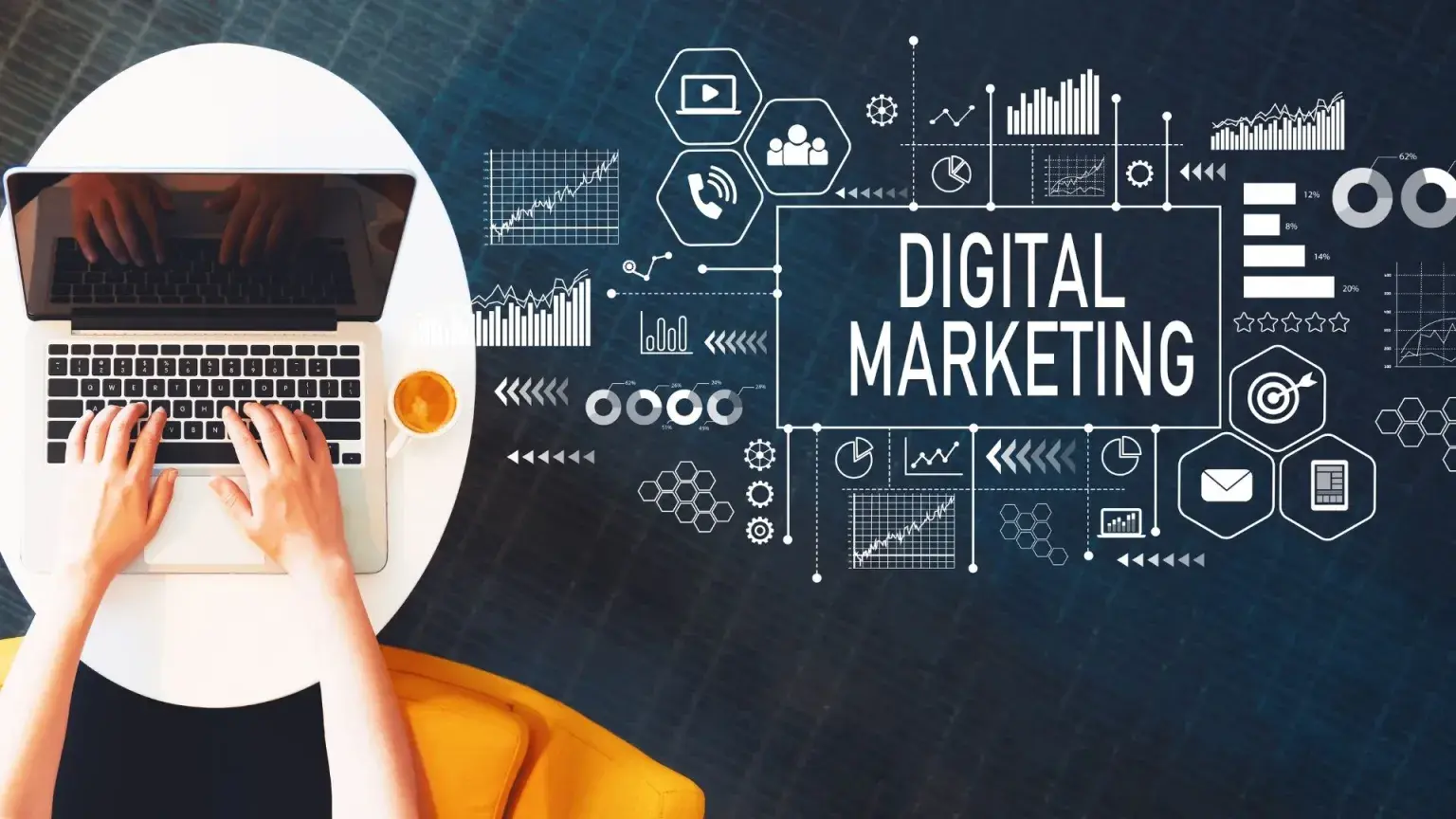
What is Digital Marketing?
Digital marketing means using the internet and other electronic devices to promote and advertise your business. Online marketing includes everything from social media to the emails in your inbox. Traditional marketing, Online marketing allows your business to interact with its customers in real time. This platform or agency dedicated to helping business grow and succeed online
Key elements of Digital Marketing Zone

Search Engine Optimization (SEO)
SEO helps a website rank high on search engines like Google. The better the SEO, the more people will find your site when searching for anything.
Content Marketing
This involves you creating informative and engaging content (e.g. blogs, videos, infographics) that provides value to your audience and builds trust.
Social Media Marketing
Platforms like Facebook, Instagram, LinkedIn and Twitter are great places to promote, connect with followers and build a brand community.
Email Marketing
One of the oldest and best tools is email marketing which comes directly to the customer’s inbox and lets you send them personalized messages
Pay-per-click (PPC) advertising
With PPC, you pay every time someone clicks on your ads. Google Ads and Facebook Ads are popular platforms for running these ads.
Affiliate Marketing
This is a performance-based marketing strategy where businesses reward affiliates for driving traffic or sales through their own marketing efforts.
Influencer Marketing
Influencers promote your brand to their followers on social media, increasing your brand’s reach and audience connection
Mobile Marketing
Marketing done through mobile devices such as SMS campaigns, in-app ads, or mobile-optimized websites.
Analytics and data tracking
Every action taken online creates data. Tools like Google Analytics help marketers understand customer behavior and improve future campaigns.
Benefits of Digital Marketing Zone

There are many reasons why businesses are moving into this field:
Cost Effective: Digital action costs less than traditional methods
Measurable: You can track every click and sale
Reach: We can target our customers locally and globally
Interaction: You can interact directly with your audience
Flexibility: You can change and improve your plan depending on how well it is working
Top Challenges in Digital Marketing
High Competition
Almost all brands are online now so it is difficult to stand out. They need unique strategies and clutter to get attention.
Changing Algorithms
Platforms like Google, Facebook and Instagram update their rules frequently. What works today may not work tomorrow.
Ad Fatigue
When people see the same ads over and over again, it is difficult to ignore them. It is important to keep content fresh.
Data Privacy and Security
Users are more aware of their data privacy. Marketers must adhere to strict regulations (e.g. GDPR, cookie consent).
Measuring ROI (Return on Investment)
It can be difficult to track the exact results of a campaign. Not all marketing efforts produce clear, immediate results.
Keeping up with Trends
Digital trends change quickly – new platforms, new devices. Marketers need to keep learning and improving themselves
Content overload
The internet is flooded with content. It’s very hard to create something that grabs and keeps the audience’s attention
Limited budget for small businesses
Big brands have more money to invest in ads. Small businesses need to be smarter and more targeted.
Importance of Digital Marketing in 2025
In 2025, Online marketing has become much more important than before. Today’s generation is fully connected to the internet and social media. Now people spend most of their time online. This is the reason why all businesses, from startups to global brands, are using digital platforms to reach their audiences so that the audience is more connected and focused.
Why it matters in 2025:
Customer behavior has changed
Nowadays people search for everything from clothes to everything else online. If your business is not online, then it will not be visible to many customers.
Affordable advertising
Compared to TV and print ads, digital marketing is much cheaper and gives better results for most small businesses.
Personalized marketing
In 2025, businesses will use all and data to send highly targeted messages. Based on custom interest locations and behavior
Faster results and real-time tracking
You can launch a campaign and see the results (like clicks or sales) in real-time. This helps you adjust quickly for better results.
Global reach, local impact
Even a small business can use digital tools to reach customers around the world and run ads in their neighborhood
Competitive advantage
Companies that use smart digital strategies have an edge over companies that are still using only traditional methods.
Voice search and smart devices
With the rise of smart speakers and voice assistants, digital marketing is evolving rapidly – and staying updated is the key to success.
Digital Marketing Strategy
Set clear goals
Example: Increase brand awareness, generate leads, improve sales.
Identify target audience
Understand demographics, interests, and online behavior.
Choose the right channel
Use platforms like Google, Facebook, LinkedIn according to the audience
Create quality content
Content should be attractive and informative and valuable
Use automation tools
Tools like MailChimp, Buffer, and HubSpot can save time and increase efficiency.
Track performance
Monitor KPIs like website traffic, conversion rates, and ROI.
Trends in Digital Marketing (2025 and beyond)
AI and Automation
AI helps with chatbots, predictive analytics, and personalized content.
Voice Search
With the rise of smart assistants, it is important to optimize for voice search
Video and live streaming
Continue to dominate as preferred content formats.
Social Commerce
Buying products directly through social media such as Instagram and Facebook
Augmented Reality (AR)
Brands use AR to improve the shopping experience (e.g., virtual try-on).
Data-Driven Marketing
Creating customized marketing campaigns using customer data
FAQs – Frequently Asked Questions
Q1. What is the main purpose of digital marketing?
To promote products or services using online platforms to reach and engage with customers.
Q2. What platforms are used in digital marketing?
Google, Facebook, Instagram, YouTube, LinkedIn, Email, Mobile apps, and more.
Q3. How is digital marketing better than traditional marketing?
It’s more affordable, measurable, interactive, and offers real-time results.
Q4. Is digital marketing good for small businesses?
Yes, it allows small businesses to compete with larger ones by targeting specific audiences at lower costs.
Q5. What skills are needed for Online marketing?
SEO, content creation, data analysis, PPC, social media strategy, and email marketing.
Q6. Can I track how well my online marketing campaign is working?
Yes, using tools like Google Analytics, Facebook Insights, and email tracking.
Q7. What are the latest online marketing trends in 2025?
AI, automation, voice search, social commerce, AR, and data-driven campaigns.
Q8. What are the key elements of Online marketing?
key elements include SEO, content marketing, social media marketing, PPC advertising, affiliate marketing, influencer marketing, mobile marketing, and analystics.
Conclusion
Digital Marketing is no longer an option – it is a necessity in 2025 As the world is growing in technology, the audience’s behavior is moving towards online, making it necessary for business to pay off. Be it any medium, be it SEO or through email, Internet marketing helps to reach the audience at the right time. Internet Marketing Zone connects all these on a powerful platform, which greatly improves the business and helps the audience and connect with more people. By understanding its elements, benefits, challenges and emerging trends, any business can create a smart, flexible and effective online marketing
Visit my Home Page-dgmarketingzone
For more information, visit my Instagram Profile-dgmarketingzone

